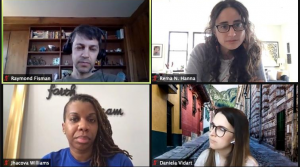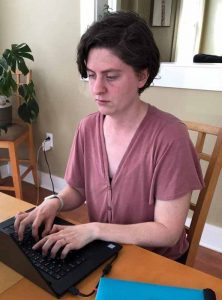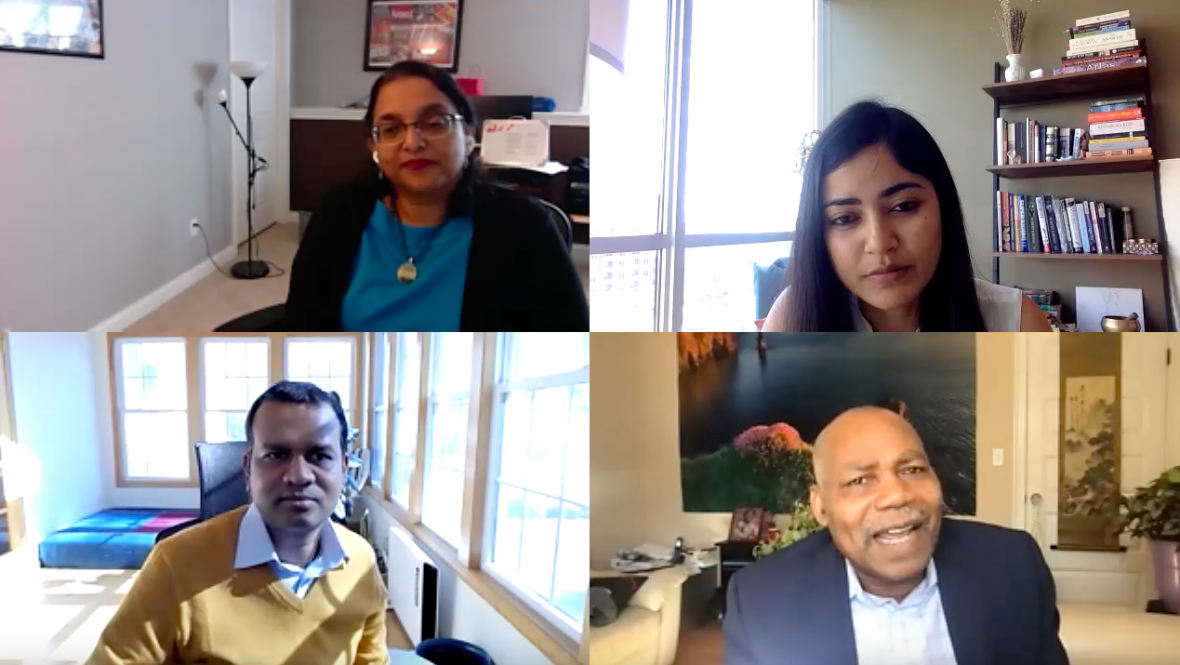The field of economics, like many areas of academics and society, has struggled over time to bring a diverse range of people into the discipline.
To address some of these issues, a UConn professor has helped create a new organization with the goal of lessening gender, race, and socioeconomic-based gaps in economics through mentorship, resource provision, and the creation of a network focused on inclusion.
AMIE, the Association for Mentoring & Inclusion in Economics, was recently founded by Nishith Prakash, an associate professor of economics at UConn with a joint appointment in the school’s Human Rights Institute. The co-founder is Priya Mukherjee, an assistant professor of economics at the University of Wisconsin.
The pair started informally working on this idea while they were both visiting scholars at Boston University’s Institute for Economic Development three years ago, and decided to formally launch AMIE this year.
Specific groups that are a focus of AMIE include underrepresented minorities, the LGBTQIA+ community, first-generation college students, women, and international students – both those studying in the United States and abroad.
“Priya and I are both extremely passionate about mentoring and inclusion,” says Prakash. “We came up with a plan to do it in a more formal way. Several months were spent on creating our team and our board of advisors. We reached out to people that are kind, who care about diversity and inclusion in the profession, which was very important to us.
“Before we reached out to economists to join AMIE as team members or serve as advisors, we spent time with each one and shared our vision with them. Ultimately, we feel we have been able to create a very well-represented group in terms of background, gender, race, and other important dimensions.”
AMIE played host to its first event in March with a Workshop in Applied Microeconomics, which was as a platform for doctoral students to present research, receive mentoring, and network. Special panel sessions were also held on a variety of topics, including navigating the economics job market and postdoctoral opportunities, publishing in economics journals, and life as an economist in both academic and non-academic settings.
The virtual event had over 100 participants from all over the world, and featured panelists who have broken new ground in economics.

“Historically, there have been a lot of barriers for entry for woman and other minorities in economics,” says Lindsey Buck, a third-year doctoral student at UConn who attended the workshop. “It started out as an old boys’ club, and once it developed that way it became hard for other people to enter.
“There was such as wide range of people from junior to senior levels in different positions that spoke. There was a lot of information you heard that you don’t often hear in talks because people were so candid and honest,” Buck says.
Along with the workshop, which is planned to be held on an annual basis, mentorship is one of the bedrocks of AMIE, with mentees recruited through an open call system. The first cohort was selected earlier this year and consists of 32 students from around the world. There are 25 mentors representing academia, industry, and non-governmental organizations.

“Economics, like most other areas, is very hierarchal in nature, and many people are left out and not included,” says Prakash. “We really wanted to target those people who would really benefit from the workshop and the mentoring program. That is hard, because somebody’s application might be very good, but they would not necessarily benefit from the workshop. We weighted both the potential benefit to the student, as well as quality.”
AMIE has received support and guidance from the University administration, as inclusion and equity is vital to the mission of the school.
“The Association for Mentoring and Inclusion in Economics is a new organization that has the potential to impact diversity in the field of economics and change the nature of the discipline too,” says UConn Vice President for Global Affairs Dan Weiner. “I am impressed with their mission and goals and delighted that Global Affairs is involved.”
Deepak Saraswat is a fourth-year doctoral students in economics, and valued the various perspectives he was able to get in just one workshop.
“The workshop brought people together and they talked openly about different topics, like what the expectations of the field are, what they like about the profession, what they dislike, what it is like to work in academia, what’s the work-life balance is like, etc,” says Saraswat.
“We hear it from our professors, but it’s good to get other peoples perspective who have recently started working in economics or are leaders in the field. It gave you the whole spectrum.”



